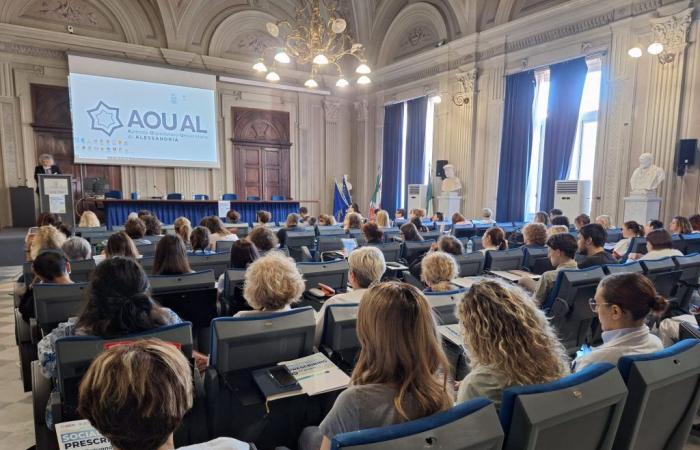Alexandria – Is it possible to use non-clinical community services and resources to benefit patient well-being? This, and more generally Social Prescribing, was discussed in the reception room of the Alessandria University Hospital.
From 9.30 am on Thursday 27 June, after greetings from the director of the Department of Integrated Research and Innovation Activities (DAIRI), Antonio Maconi, the proceedings opened, introduced by Tatiana Bolgeo, director of the Research Study Center for Health Professions, Mary Lynch , Executive Vice Dean for Research in Faculty of Nursing & Midwifery, RCSI University of Medicine and Health Sciences, Dublin, who focused on “Social Prescribing, Social Value and Social Return on investment”.
On the other hand, Alejandre Julze, Research Fellow in Public Engagement Behavioral Research Unit, University of Edinburgh, spoke about “Nature based Social Prescribing”.
Mariateresa Dacquino, director of the Study Center for Medical Humanities, introduced the researcher from the Istituto Superiore di Sanità Ilaria Lega, who oversaw the Italian translation of the WHO manual dedicated to social prescribing together with the Cultural Welfare Center (CCW), represented, in connection, by Annalisa Cicerchia, Senior Researcher at the National Institute of Statistics who directs a line of research at Istat on “New questions of post-Covid well-being and health: the cultural welfare strategy to combat inequalities”.
The meeting was therefore an opportunity to discover and deepen the social prescription (Social Prescribing), a tool that, based on scientific evidence relating to the impact of socioeconomic factors on health and on the hypothesis that addressing social determinants is crucial to improve health outcomes, allows health professionals to use non-clinical community services and resources for the benefit of patients’ well-being, reaffirming the centrality of the biopsychosocial model.






